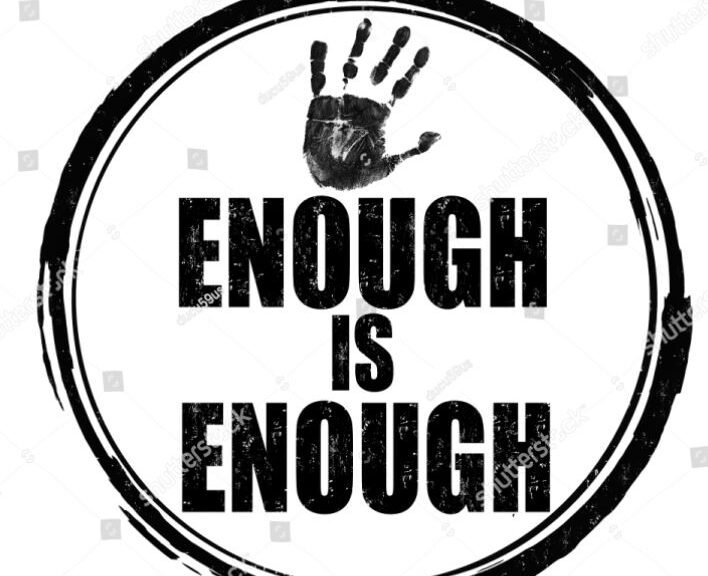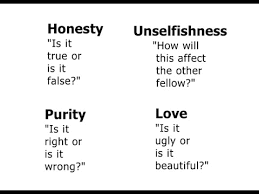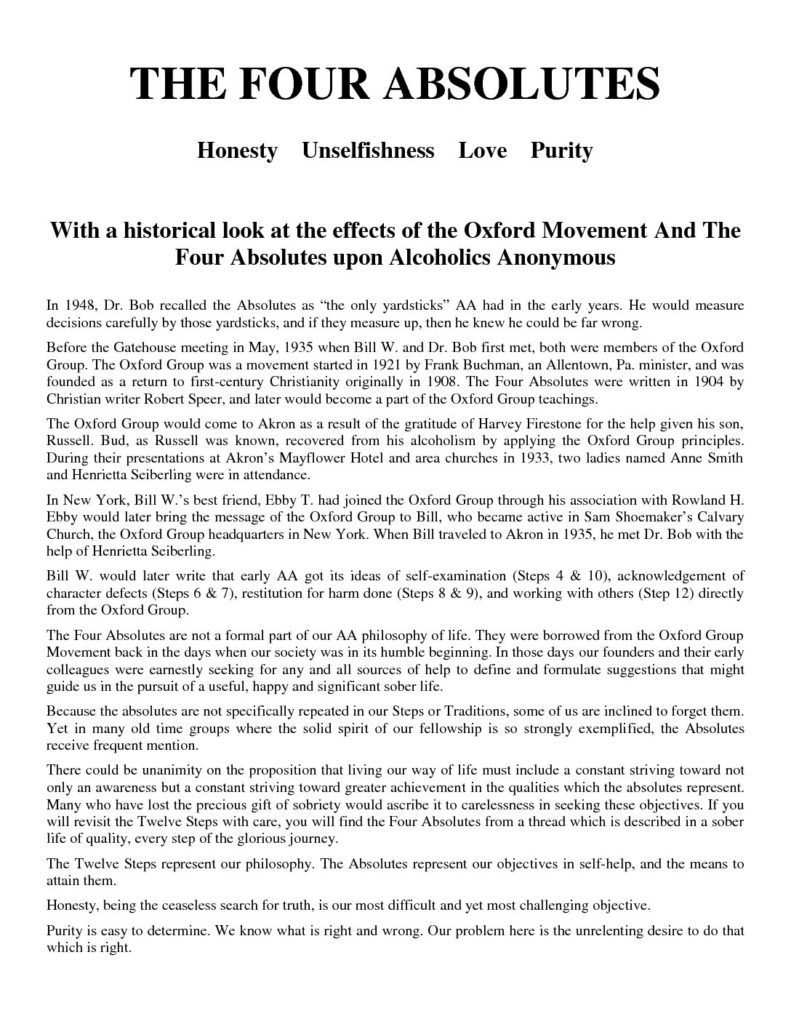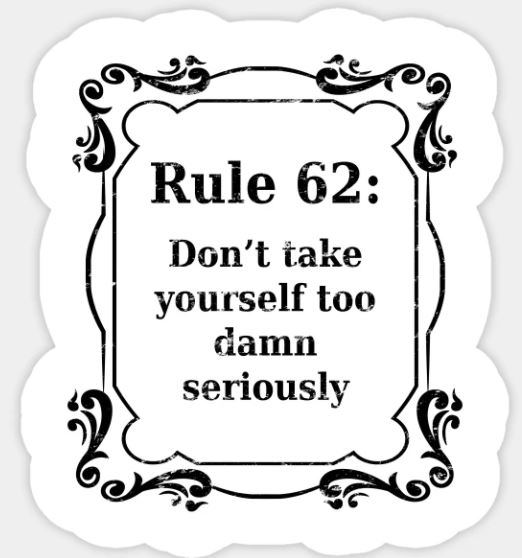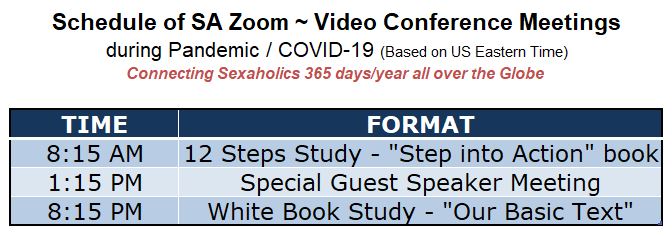Anger has already been touched on in this booklet, but some rough experiences have convinced us it
is so important it deserves special attention from anyone wanting to get over a drinking problem.
Hostility, resentment, anger—whatever word you use to describe this feeling—seems to have a close
tie-up with intoxication and maybe even a deeper one with alcoholism.
For instance, some scientists once asked a large number of alcoholic men why they got drunk, and
found an important answer was “So I can tell somebody off.” In other words, they felt the power and
freedom while drunk to express anger they could not comfortably display when sober.
Someone has suggested there may be a subtle, undetermined biochemical relationship between
alcohol and the kind of body changes that accompany anger. One experimental study of alcoholics
suggested that resentments may create in the blood of alcoholics a certain uncomfortable condition
that is cleared up by a binge. A top psychologist has recently suggested that drinkers may enjoy the
feelings of power over others that the influence of alcohol can bring.
Facts have been reported about the close correlation between drinking and assaults and homicides. It
seems a large proportion of these in some countries happen when either the victim or the perpetrator
(or both) is under the influence of alcohol. Rapes, domestic squabbles leading to divorce, child
abuse, and armed robbery are also frequently laid at the doorstep of excessive drinking.
Even those of us who have had no experience in such behavior can easily understand the kind of
fierce rage which might lead some people to think of such violence when they are tight enough. So
we recognize the potential danger in anger.
There seems little doubt that it is a natural state to occur in the human animal from time to time.
Like fear, it may well have some survival value for all members of species homo sapiens. Anger
toward abstractions such as poverty, hunger, illness, and injustice have no doubt produced changes
for the better in various cultures.
But there is also no denying that mayhem and even verbal assaults committed in excesses of anger
are deplorable and do damage to society as a whole, as well as to individuals. Therefore, many
religions and philosophies urge us to get rid of anger in order to find a happier life.
Yet a great number of people are certain that bottling up anger is very bad for emotional health, that
we should get our hostility out in some way, or it will “poison” our insides by turning inward toward
ourselves, thus leading to deep depression.
Anger in all its aspects is a universal human problem. But it poses a special threat to alcoholics: Our
own anger can kill us. Recovered alcoholics almost unanimously agree that hostility, grudges, or
resentments often make us want to drink, so we need to be vigilant against such feelings. We have
found much more satisfying ways than drinking for dealing with them.
But we’ll get to those later. First, here is a look at some of the shapes and colors anger seems at
times to arrive in:
intolerance snobbishness tension distrust
contempt rigidity sarcasm anxiety
envy cynicism self-pity suspicion
hatred discontent malice jealousy
Various AA members have, when sober, been able to trace all those feelings to some underlying
anger. During our drinking days, many of us spent little time thinking such things out. We were
more likely to brood about them, or to overreact, especially after we heightened such feelings by
taking another drink.
Perhaps fear should be on that list, too, because many of us believe anger is frequently an outgrowth
of fear. We’re not always sure what we’re afraid of; sometimes, it is just a vague, generalized,
nameless fear. And it can give rise to an equally generalized anger, which may suddenly focus on
something or someone.
Feelings of frustration also can give birth to anger. As a class, problem drinkers are not famous for a
high tolerance level when faced with frustration, real or imaginary. A drink used to be our favorite
solvent for such an indigestible emotion.
Perhaps “justifiable” resentment is the trickiest of all to handle. It’s the end product of “righteous”
anger, after long cherishing, and if it is allowed to continue, it will slowly undermine our defenses
against taking a drink.
Even if we actually have been treated shabbily or unjustly, resentment is a luxury that, as alcoholics,
we cannot afford. For us, all anger is self-destructive, because it can lead us back to drinking.
(Learning to deal with resentments is discussed in more detail in the books “Alcoholics
Anonymous” and “Twelve Steps and Twelve Traditions.”)
We cannot pretend to be experts at understanding depth psychology, so we have to concentrate at
first, not on searching for the causes of uncomfortable feelings of anger, but on coping with the
feelings themselves, whether or not we think they are justified. We zero in on how to keep such
feelings from fooling us into taking a drink.
Interestingly, several of the methods already discussed for avoiding a drink have also worked
splendidly for getting over the inner discomfort we suffer when angry. For instance, when we begin
to simmer inside, it sometimes helps a great deal to take a few bites of something good to eat, or a
glass of a sweetened, non-intoxicating beverage.
It’s also remarkably effective, when we begin to get teed off at something, to pick up the phone and
talk about it to our sponsor or to other recovered alcoholics. And it pays to pause and consider
whether or not we may be overtired. If so, we’ve found that some rest often dissipates rage.
Repeatedly, simply pondering “Live and Let Live” cools our temper.
Or we may shift quickly to an activity that has nothing to do with the source of our anger—work it
off with some lively exercise—lose it in listening to our favorite music.
Fire off your “Endorphins” in the humabn body: any of a group of hormones secreted within the brain and nervous system and having a number of physiological functions. They are peptides which activate the body’s opiate receptors, causing an analgesic effect.
Similar to food— candy, chocolate (sugar) and soda (caffeine) or perhaps tobacco (nicotine in cigarette, cigar, vape).
Read more
For many of us, contemplating the ideas of the Serenity Prayer blows away our hostility. Often,
whatever we are mad about turns out to be something we cannot possibly control or change (traffic
jams, the weather, long supermarket lines, for example), so the sensible, mature thing to do is just
accept it, rather than boil inside fruitlessly or turn to alcohol.
Of course, at times we are resentful of a circumstance in our life that can, and should, be changed.
Maybe we should quit a job and get a better one, or get a divorce, or move the family to a different
neighborhood. If so, such a decision needs to be made carefully, not in haste or anger. So we still
should cool down first. Then maybe we can give some calm, constructive thought to figuring out
whether our resentment is directed at something we can change. To double-check this, see the
section on the Serenity Prayer, page 18.
Sometimes, it isn’t long resentment we must deal with, but a sudden, consuming rage. The 24-hour
plan (page 5) and “First Things First” (page 32) have helped many of us cope with such a rage,
although we didn’t see how they possibly could until we actually tried them—and got surprisingly
good results.
Another effective remedy for anger is the “as if” idea. We decide how a mature, truly well-balanced
person would ideally handle a resentment like ours, then act as »/we were that person. Have a go at
it a few times. It works, too.
And for many of us, so does the professional guidance of a good counselor of some sort, a
psychiatrist or other physician, or a clergyman.
We can also find an outlet in harmless physical action. The exercise already mentioned, deep
breathing, a hot soak, and (in private) pounding a chair or a cushion and yelling have all relieved
anger for lots of people.
Simply repressing, glossing over, or damming up anger rarely seems advisable. Instead, we try to
learn not to act on it, but to do something about it. If we don’t, we increase enormously our chances
of drinking.
As laymen who know simply our own experience, we recovered alcoholics have no laboratory
knowledge or scientific theories about these matters. But few people who have ever had a hangover
could forget how unreasonably irritable it makes you feel. Sometimes, we took it out on family
members, fellow workers, friends, or strangers who certainly had not earned our displeasure. That
tendency can hang around awhile after we start staying sober, the way wraiths of stale smoke do in a
closed-up barroom, reminding us of drinking days—until we do a good mental housecleaning.
ref. AA “Living Sober” book. Click here => http://saphonemeeting.org/images/Living_Sober.pdf
Anger has already been touched on in this booklet, but some rough experiences have convinced us it
is so important it deserves special attention from anyone wanting to get over a drinking problem.
Hostility, resentment, anger—whatever word you use to describe this feeling—seems to have a close
tie-up with intoxication and maybe even a deeper one with alcoholism.
For instance, some scientists once asked a large number of alcoholic men why they got drunk, and
found an important answer was “So I can tell somebody off.” In other words, they felt the power and
freedom while drunk to express anger they could not comfortably display when sober.
Someone has suggested there may be a subtle, undetermined biochemical relationship between
alcohol and the kind of body changes that accompany anger. One experimental study of alcoholics
suggested that resentments may create in the blood of alcoholics a certain uncomfortable condition
that is cleared up by a binge. A top psychologist has recently suggested that drinkers may enjoy the
feelings of power over others that the influence of alcohol can bring.
Facts have been reported about the close correlation between drinking and assaults and homicides. It
seems a large proportion of these in some countries happen when either the victim or the perpetrator
(or both) is under the influence of alcohol. Rapes, domestic squabbles leading to divorce, child
abuse, and armed robbery are also frequently laid at the doorstep of excessive drinking.
Even those of us who have had no experience in such behavior can easily understand the kind of
fierce rage which might lead some people to think of such violence when they are tight enough. So
we recognize the potential danger in anger.
There seems little doubt that it is a natural state to occur in the human animal from time to time.
Like fear, it may well have some survival value for all members of species homo sapiens. Anger
toward abstractions such as poverty, hunger, illness, and injustice have no doubt produced changes
for the better in various cultures.
But there is also no denying that mayhem and even verbal assaults committed in excesses of anger
are deplorable and do damage to society as a whole, as well as to individuals. Therefore, many
religions and philosophies urge us to get rid of anger in order to find a happier life.
Yet a great number of people are certain that bottling up anger is very bad for emotional health, that
we should get our hostility out in some way, or it will “poison” our insides by turning inward toward
ourselves, thus leading to deep depression.
Anger in all its aspects is a universal human problem. But it poses a special threat to alcoholics: Our
own anger can kill us. Recovered alcoholics almost unanimously agree that hostility, grudges, or
resentments often make us want to drink, so we need to be vigilant against such feelings. We have
found much more satisfying ways than drinking for dealing with them.
But we’ll get to those later. First, here is a look at some of the shapes and colors anger seems at
times to arrive in:
intolerance snobbishness tension distrust
contempt rigidity sarcasm anxiety
envy cynicism self-pity suspicion
hatred discontent malice jealousy
Various AA members have, when sober, been able to trace all those feelings to some underlying
anger. During our drinking days, many of us spent little time thinking such things out. We were
more likely to brood about them, or to overreact, especially after we heightened such feelings by
taking another drink.
Perhaps fear should be on that list, too, because many of us believe anger is frequently an outgrowth
of fear. We’re not always sure what we’re afraid of; sometimes, it is just a vague, generalized,
nameless fear. And it can give rise to an equally generalized anger, which may suddenly focus on
something or someone.
Feelings of frustration also can give birth to anger. As a class, problem drinkers are not famous for a
high tolerance level when faced with frustration, real or imaginary. A drink used to be our favorite
solvent for such an indigestible emotion.
Perhaps “justifiable” resentment is the trickiest of all to handle. It’s the end product of “righteous”
anger, after long cherishing, and if it is allowed to continue, it will slowly undermine our defenses
against taking a drink.
Even if we actually have been treated shabbily or unjustly, resentment is a luxury that, as alcoholics,
we cannot afford. For us, all anger is self-destructive, because it can lead us back to drinking.
(Learning to deal with resentments is discussed in more detail in the books “Alcoholics
Anonymous” and “Twelve Steps and Twelve Traditions.”)
We cannot pretend to be experts at understanding depth psychology, so we have to concentrate at
first, not on searching for the causes of uncomfortable feelings of anger, but on coping with the
feelings themselves, whether or not we think they are justified. We zero in on how to keep such
feelings from fooling us into taking a drink.
Interestingly, several of the methods already discussed for avoiding a drink have also worked
splendidly for getting over the inner discomfort we suffer when angry. For instance, when we begin
to simmer inside, it sometimes helps a great deal to take a few bites of something good to eat, or a
glass of a sweetened, non-intoxicating beverage.
It’s also remarkably effective, when we begin to get teed off at something, to pick up the phone and
talk about it to our sponsor or to other recovered alcoholics. And it pays to pause and consider
whether or not we may be overtired. If so, we’ve found that some rest often dissipates rage.
Repeatedly, simply pondering “Live and Let Live” cools our temper.
Or we may shift quickly to an activity that has nothing to do with the source of our anger—work it
off with some lively exercise—lose it in listening to our favorite music.
Fire off your “Endorphins” in the humabn body: any of a group of hormones secreted within the brain and nervous system and having a number of physiological functions. They are peptides which activate the body’s opiate receptors, causing an analgesic effect.
Similar to food— candy, chocolate (sugar) and soda (caffeine) or perhaps tobacco (nicotine in cigarette, cigar, vape).
Read more
For many of us, contemplating the ideas of the Serenity Prayer blows away our hostility. Often,
whatever we are mad about turns out to be something we cannot possibly control or change (traffic
jams, the weather, long supermarket lines, for example), so the sensible, mature thing to do is just
accept it, rather than boil inside fruitlessly or turn to alcohol.
Of course, at times we are resentful of a circumstance in our life that can, and should, be changed.
Maybe we should quit a job and get a better one, or get a divorce, or move the family to a different
neighborhood. If so, such a decision needs to be made carefully, not in haste or anger. So we still
should cool down first. Then maybe we can give some calm, constructive thought to figuring out
whether our resentment is directed at something we can change. To double-check this, see the
section on the Serenity Prayer, page 18.
Sometimes, it isn’t long resentment we must deal with, but a sudden, consuming rage. The 24-hour
plan (page 5) and “First Things First” (page 32) have helped many of us cope with such a rage,
although we didn’t see how they possibly could until we actually tried them—and got surprisingly
good results.
Another effective remedy for anger is the “as if” idea. We decide how a mature, truly well-balanced
person would ideally handle a resentment like ours, then act as »/we were that person. Have a go at
it a few times. It works, too.
And for many of us, so does the professional guidance of a good counselor of some sort, a
psychiatrist or other physician, or a clergyman.
We can also find an outlet in harmless physical action. The exercise already mentioned, deep
breathing, a hot soak, and (in private) pounding a chair or a cushion and yelling have all relieved
anger for lots of people.
Simply repressing, glossing over, or damming up anger rarely seems advisable. Instead, we try to
learn not to act on it, but to do something about it. If we don’t, we increase enormously our chances
of drinking.
As laymen who know simply our own experience, we recovered alcoholics have no laboratory
knowledge or scientific theories about these matters. But few people who have ever had a hangover
could forget how unreasonably irritable it makes you feel. Sometimes, we took it out on family
members, fellow workers, friends, or strangers who certainly had not earned our displeasure. That
tendency can hang around awhile after we start staying sober, the way wraiths of stale smoke do in a
closed-up barroom, reminding us of drinking days—until we do a good mental housecleaning.
ref. AA “Living Sober” book. Click here
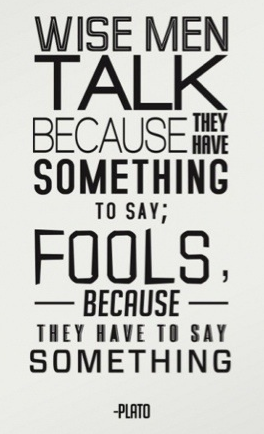
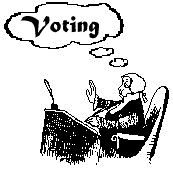 Counting Votes; Voting Results
Counting Votes; Voting Results











